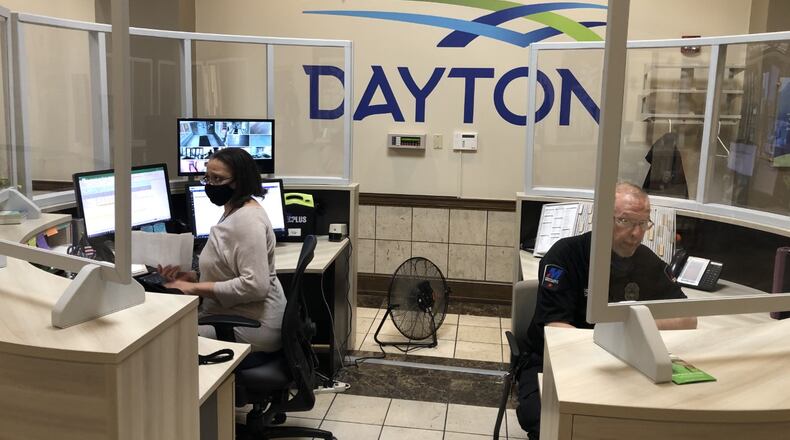City staff are scrambling to review and evaluate funding requests and determine eligible costs for reimbursement, as well as procure equipment, items and services they say will help during the public health emergency.
“To move $17 million with rules of the federal government and rules of the state government is not an easy challenge, especially as late as we’re getting (the money),” said Dayton Mayor Nan Whaley.
Credit: jim noelker
Credit: jim noelker
Money not spent by the deadline must be returned to the Montgomery County Auditor’s office, which will redistribute the funds to jurisdictions that used up all of their allocations, said Auditor Karl Keith.
The city hopes to be able to receive additional money.
City staff have been working long hours to try to ensure the city spends its $17.3 million CARES Act allocation before time runs out, said Dayton City Manager Shelley Dickstein.
The city already has spent or encumbered about $7.9 million of its Coronavirus Aid, Relief, and Economic Security (CARES) Act money, city officials say.
The funds come from the massive stimulus package approved by federal lawmakers.
The Dayton City Commission has approved CARES Act expenditures every week since Sept. 23, and there are five more commission meetings before the Nov. 20 deadline, said Monica Jones, assistant to Dayton’s city manager.
Projects must be completed and invoiced by Dec. 30. A variety of items are expected to show up on the commission calendar in coming weeks.
This week, the commission approved buying body temperature detection cameras, a medical alert system and mobile radios and accessories for the Dayton International Airport.
The city also authorized the purchase of automatic faucets and flush valves ($300,000), touchless water fountains ($93,800), touchless paper and soap dispensers ($23,940) and video conferencing cameras ($26,100) for city facilities.
The city also decided to use some of its money to help out arts and cultural groups and nonprofit organizations that have been hurt by the pandemic or that provide important assistance to the community.
Roughly 20 arts and cultural groups submitted applications requesting funding by the Oct. 12 deadline, Jones said.
Applications from nonprofit organizations are due Monday, she said, and the city expects to receive at least twice as many requests.
The city is still evaluating 85 applications for its small business capital grant program, but around 30 small businesses are expected to receive awards, she said.
The city also plans to spend more than $2 million in CARES money on public safety and $5.1 million on payroll, according to city documents.
Public safety employees have spent more than 23,100 hours responding to issues and calls related to the pandemic, the city said.
The city also has used CARES money to distribute 230,000 masks to the public and pay for temporary barriers for road closures to support businesses in the Oregon District.
Cities, villages and townships in Montgomery County have now received $39 million in CARES Act funds, and the lion’s share went to Dayton, said Auditor Keith.
Nearly 30 municipalities received funds, including Kettering, $3.1 million; Huber Heights, $2.1 million; Washington Twp., $1.6 million; and both Riverside and Miami Twp. received about $1.4 million.
Money unspent by jurisdictions on Nov. 20 will be returned to the auditor, who will redistribute the leftovers to jurisdictions that ran out of money, based on population, Keith said.
About the Author


